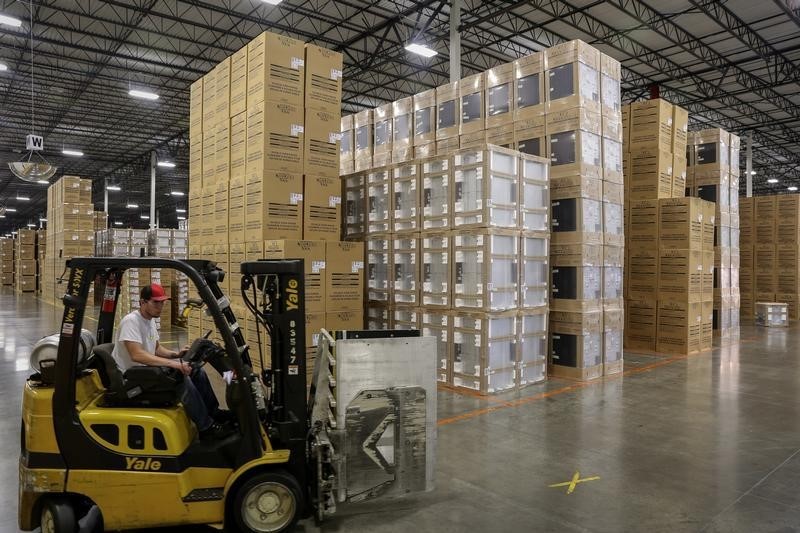(Bloomberg) -- Optimism among chief executive officers of large U.S. companies cooled for a fourth straight quarter amid greater uncertainty about global economic growth, a Business Roundtable survey showed.
The lobbying group’s CEO Economic Outlook Index fell 9.2 points to 95.2 in the first quarter, the lowest since the third quarter of 2017 though still above the gauge’s historical average, according to the survey released Wednesday. The drop was broad-based, driven by lower readings across all three components: hiring plans, capital investment expectations and estimates for sales.
Key Insights
- The continued pullback from a record level a year earlier underscores dimming optimism for the world’s largest economy as growth engines from Europe to China decelerate. A report earlier this month showed sentiment among small-business owners was near its weakest since Donald Trump was elected president in 2016.
- CEOs projected a 2.5 percent expansion in the U.S. economy this year, down from a 2.7 percent estimate in the prior quarter. That adds to expectations that growth is unlikely to match last year’s performance of about 3 percent.
Official’s View
- “As we encounter a potential softening of global economic conditions, it’s all the more important to advance policies that will promote American innovation and strengthen the U.S. economy for the long term,” Business Roundtable President Joshua Bolten said in the report.
Get More
- The share who expect to increase their company’s U.S. employment in the next six months fell to 48 percent from 56 percent three months earlier, the Feb. 20-March 8 survey of 139 CEOs showed.
- Those who saw greater capital spending eased to 48 percent from 53 percent while those projecting a rise in sales slipped to 73 percent from 80 percent.
- The poll included a special question on how important it is for Congress to enact a national consumer privacy law now that the European Union’s General Data Protection Regulation is in effect and California’s Consumer Privacy Act follows next year. Eighty percent of respondents said doing so was either “very important” or “somewhat important.”
